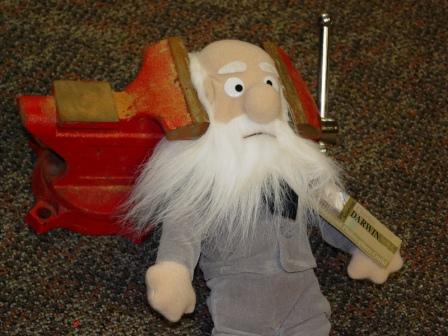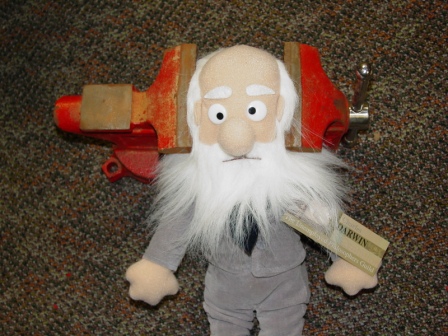The recent hearings conducted by the school board in Kansas (May 5-7, 2005) made it clear that what needs to happen is not for our side to be interrogated by Clarence Darrow manqués (like Pedro Irigonegaray, the attorney for the other side in Kansas) but for our side to get to interrogate the Darwinists. As I pointed out on this blog (May 6, 2005, “Kansas Hearings: Scopes in Reverse? –Yes and Noâ€Â), Darwinists have a long record of evading critical scrutiny, a problem that goes right back to the original Scopes Trial.

In the Scopes Trial, Clarence Darrow (cf. Pedro Irigonegaray) got to interrogate the evolution critics, but William Jennings Bryan (cf. Kansas attorney John Calvert for our side) did not get to interrogate the evolutionists. It is a little known fact that William Jennings Bryan agreed to be interrogated by Clarence Darrow only if Bryan could in turn interrogate Darrow on Darrow’s views of evolution. Darrow agreed, but then right after interrogating Bryan directed the judge to find Scopes guilty, thereby closing the evidence and thus preventing Bryan from interrogating Darrow (for the details about this ploy, see Edward Sisson’s essay in my book Uncommon Dissent).
Thus, in a crucial way, the Kansas hearings repeat the pattern set by the Scopes Trial, which has been repeated many times since, namely, evolutionists escaped critical scrutiny by not having to undergo cross-examination. In this case, they accomplished the feat by boycotting the hearings. I therefore await the day when the hearings are not voluntary but involve subpoenas that compel evolutionists to be deposed and interrogated at length on their views. There are ways for this to happen, and the wheels are in motion (e.g., Congressional hearings over the teaching of biology in federally funded high schools for military kids). For such hearings to have the desired effect, however, will require that evolutionists be asked the right questions.
What I propose, then, is a strategy for interrogating the Darwinists to, as it were, squeeze the truth out of them. For a glimpse of what I have in mind, see the examination of Eugenie Scott by Robert George before the U.S. Commission on Civil Rights (go here).
